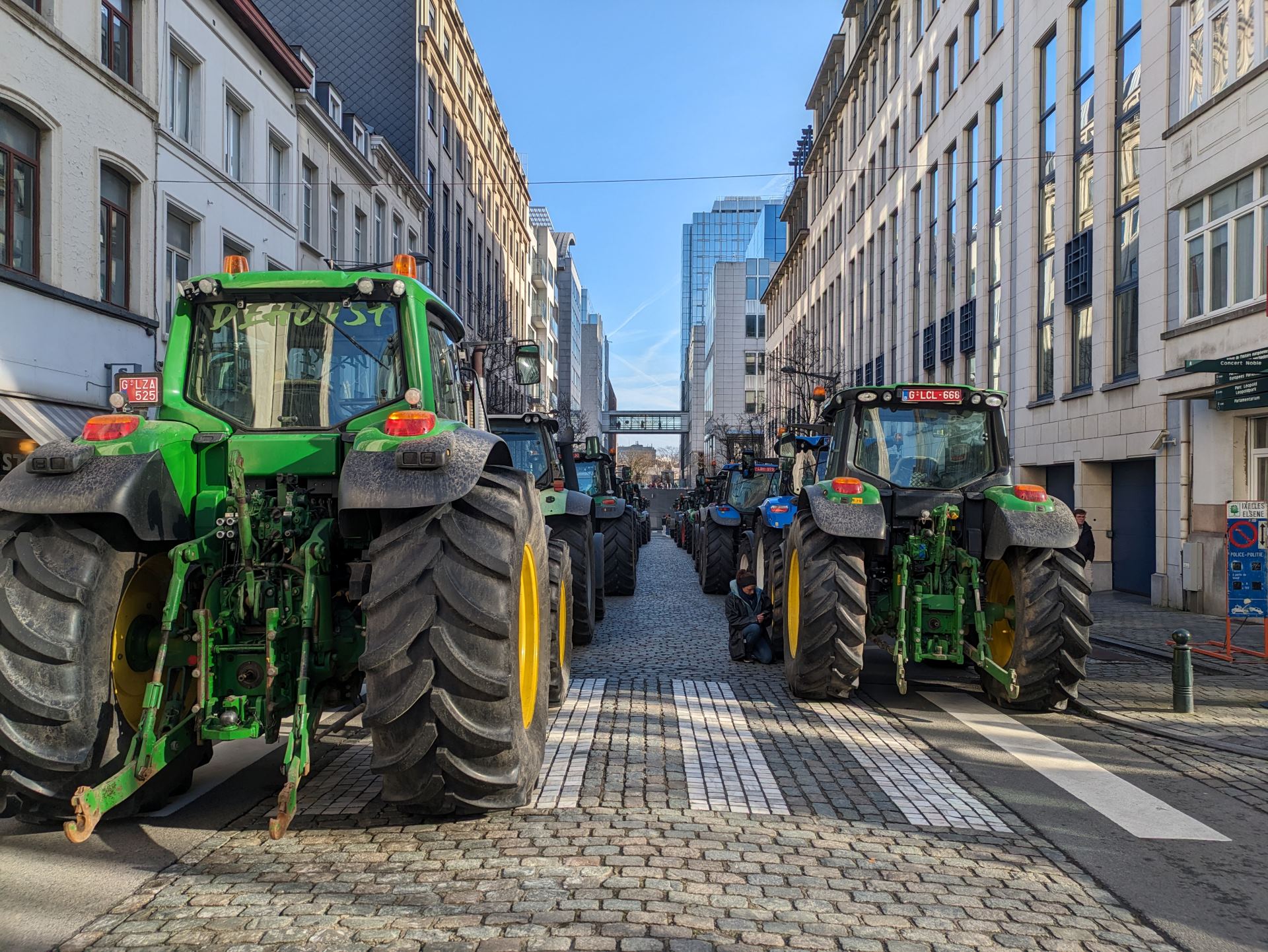Do EU Elections Put the Green Deal on the Back Burner?
Balancing political priorities with environmental commitments.
The European Green Deal, once hailed as a beacon of sustainability, now finds itself at a critical crossroads amidst mounting criticism and political setbacks. With the European Parliament elections looming in June 2024, the efficacy and priority of the Green Deal face intense scrutiny.
Recent developments paint a mixed picture of its progress. On one hand, the European Commission’s announcement of an interim target to cut 90% of greenhouse gas emissions by 2040 signals ambition. On the other hand, delays in critical laws, farmer protests, the abandoning of measures to halve pesticide usage across the European Union (EU), and a slew of other backlashes highlight a gap between setting targets and implementing policies effectively.
Navigating Political Turbulence: The Nature Restoration Law
The Nature Restoration Law (NRL), a significant component of the Green Deal, has faced strong opposition. This legislation aims to undo the environmental harm caused by human activity and climate change by setting specific targets for restoring areas such as farmlands, peatlands, and marine ecosystems.

While some see the NRL as crucial to enhancing agricultural resilience and biodiversity, others view it as a setback in the EU’s pursuit of strategic autonomy, leading to significant politicization of this climate law during negotiations. In June 2022, last-minute amendments were proposed by right-wing groups urging Parliament to reject the law entirely. The European Conservatives and Reformists Party (ECR) proposed six amendments aimed at diluting the legislation, including suggestions to restrict its impact to protected Natura 2000 areas and EU special conservation zones.
They also advocated postponing the adoption of the law until after the EU elections. The European People’s Party (EPP) and Renew Europe have also voiced their opposition, with the EPP arguing that the law would negatively affect food production and the livelihoods of farmers, foresters, and fishers.
The amendments proposed for voting were dismissed, along with the standalone vote to outright reject the law. The resounding voices of over a million citizens, businesses, scientists, and non-governmental organizations (NGOs) have echoed with urgency, charting the course for groundbreaking legislation. The European Parliament voted in favor of the diluted version of the legislation on February 27. However, progress within the EU has hit a hurdle due to recent political maneuvers, despite having garnered widespread support and approval from the European Parliament in March.
The NRL’s advancement has been hindered by last-minute shifts in stance from certain Member States. Hungary, notably, made alterations to its position, while the Netherlands, Sweden, Poland, Italy, Belgium, Finland, and Austria either abstained or opposed the legislation, putting its future in jeopardy. This delay raises concerns about the NRL’s fate. Belgium Prime Minister, Alexander De Croo, current president of the Council of the EU, said on 31 March, that the bill “may sound good, but it is a bad law.”
NGOs are urging the Belgian presidency to promptly address the deadlock and secure adoption of the NRL. Additionally, they are appealing to European Commission President Ursula von der Leyen to take decisive action to preserve at least one aspect of the biodiversity strategy. It’s important to prioritize the fight against climate change over political wrangling in Parliament. Our focus must remain steadfast, placing the health of our planet and its ecosystems at the forefront, regardless of short-term political interests. Urging national legislators to promptly adopt the law is essential, as it will facilitate the much-needed restoration efforts crucial to addressing the climate and nature crises gripping the EU.
Challenges and Rifts in European Agriculture Amidst the Green Deal
The agricultural sector’s resistance to the Green Deal poses a significant challenge. Throughout Europe, farmers are taking to the streets in protest. While the EU aims to transition to a more sustainable agricultural model through initiatives like the Farm to Fork strategy, farmers’ organizations stress that genuine sustainability cannot be achieved without giving precedence to ecological practices over international competitiveness. Although environmentally friendly farming benefits the planet, it often entails higher costs for farmers, underscoring the necessity of safeguarding agricultural markets during the transition.
The European Commission’s response to farmer protests underscores the challenges of balancing environmental goals with economic realities.
European farmers find themselves in an untenable position: striving for agroecological practices while under pressure to produce at the lowest possible prices. This dilemma has resulted in rifts within farming organizations, with some advocating for the removal of environmental measures outlined in the Green Deal. The European Commission’s response to farmer protests underscores the challenges of balancing environmental goals with economic realities.
The EU has made significant adjustments to its climate roadmap, and the European Commission has proposed measures such as limiting agricultural imports from Ukraine and granting exemptions to farmers from fallow land obligations while still receiving EU subsidies in 2024. Agriculture ministers have discussed proposals to alleviate financial burdens on European farmers, including reducing farm inspections and potentially exempting small farms from certain environmental standards.

As far-right parties in Europe, poised to make significant gains in the upcoming European Parliament elections in June, increasingly rally behind farmers, the likelihood of additional compromise appears inevitable.
Ursula von der Leyen’s Decision on Pesticide Regulation
Early in February of 2024, President Ursula von der Leyen stated that the Sustainable Use Regulation (SUR), a legislation designed to curtail the use of pesticides in the European Union, will be withdrawn. She cited the law’s contentious nature and the lack of progress in political negotiations. The agriculture industry vigorously opposed the SUR, which finally failed to pass the European Parliament.
Environmental groups protested the withdrawal and demanded legally binding pesticide reduction objectives, while farmer lobbyists welcomed the move. It is something that needs to be closely monitored because the next Commissioner will be tasked with developing a fresh proposal, and this will come with a short timeline due to the impending European Parliament elections this summer.
As Europe approaches crucial elections, the need for cohesive and effective environmental policy has never been more pressing. The Green Deal’s vision of a sustainable future must navigate the complexities of politics, economics, and social dynamics. It requires collaboration, compromise, and steadfast commitment to addressing both environmental concerns and the livelihoods of citizens.
The economic implications of the Green Deal cannot be overlooked.
Additionally, the economic implications of the Green Deal cannot be overlooked. While transitioning to a more sustainable economy may entail short-term costs, the long-term benefits, both in terms of environmental conservation and economic resilience, are undeniable. Therefore, policymakers need to devise strategies that not only mitigate the negative impacts on certain industries, but also foster innovation and job creation in green sectors.
In navigating these challenges, effective communication and public engagement are critical. The success of the Green Deal relies on garnering widespread support from citizens, businesses, and civil society organizations, and making it a priority for the next Commission Presidency. By fostering dialogue, raising awareness, and empowering stakeholders to participate in decision-making processes, the EU can build a strong foundation for sustainable development.